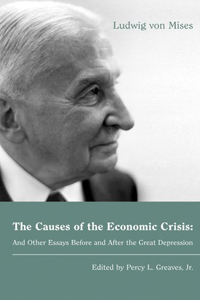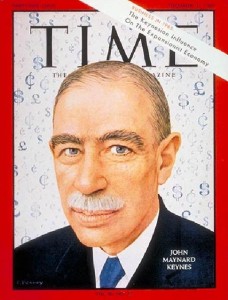“Sir, On reading all the jittery comments in your paper on the issue of Scottish Independence these past few days, I cannot help but notice a supreme irony: ever since the conference of Messina in 1956, there has been a steady stream of predictions by British politicians and media regarding an imminent break-up of the EC / EU, and, more recently, the Eurozone. Yet while the European behemoth struggles on towards ever closer union, the United Kingdom is on the verge of breaking apart for no sensible reason at all.”
-
Letter to the FT from Professor Hubert Zimmermann, Professor of International Relations, University of Marburg, Germany, 18.9.2014.
“During the 17th century, Scottish investors had noticed with envy the gigantic profits being made in trade with Asia and Africa by the English charter companies, especially the East India Company. They decided that they wanted a piece of the action and in 1694 set up the Company of Scotland, which in 1695 was granted a monopoly of Scottish trade with Africa, Asia and the Americas. The Company then bet its shirt on a new colony in Darien – that’s Panama to us – and lost. The resulting crash is estimated to have wiped out a quarter of the liquid assets in the country, and was a powerful force in impelling Scotland towards the 1707 Act of Union with its larger and better capitalised neighbour to the south. The Act of Union offered compensation to shareholders who had been cleaned out by the collapse of the Company; a body called the Equivalent Society was set up to look after their interests. It was the Equivalent Society, renamed the Equivalent Company, which a couple of decades later decided to move into banking, and was incorporated as the Royal Bank of Scotland. In other words, RBS had its origins in a failed speculation, a bail-out, and a financial crash so big it helped destroy Scotland’s status as a separate nation.”
-
From John Lanchester’s ‘It’s finished’ (London Review of Books, 2009).
“And now the marriage vow is very sacred
The man has put us together now
You ought to make it stick together
Come on, come on let’s stick together
You know we made a vow not to leave one another never.”
-
Bryan Ferry, ‘Let’s stick together’.
So in the end, calmer heads prevailed. The Scottish Independence Referendum never looked seriously like severing the Union – a few rogue polls aside – but it certainly gave Westminster interests a run for their money. We’re inclined to side with Nick Reid’s view of the campaign (“horribly divisive, intimidatory and bereft of factual argument”) and would add our opinion that the EU should never have allowed what always looked suspiciously like a nasty, racist vote orchestrated by nasty, racist nationalists. On the theme of economic credibility, we found the composition of major donors to each side highly illuminating. The pro-Union ‘No’ group received its biggest donation from the successful author and Harry Potter industry-creating J.K. Rowling. The pro-Independence ‘Yes’ group received its biggest donation from Chris and Colin Weir. Their contribution to the Scottish economy ? They won the lottery.
The motives behind the architect of this failed beerhall putsch, Alex Salmond, always struck us as narrowly fascistic (fascism being defined here as a supreme belief in the superiority of action over thought). Theodore Dalrymple took a similar line, referring to the termagant SNP leader as “the Caledonian Chávez”, who
“does not so much promise to solve problems as arouse hope, a hope that is vague, general and unfocused.. [Such hopes] are not encouraging for those who value freedom and prosperity.. he would increase government interference in and direction of the economy. He is a dirigiste who far outflanks the Labour Party on the Left.”
Much of the Independence campaign was fought amid the fog of North Sea Oil revenues; North Sea Oil being, for Salmond
“..the fairy godmother who brings what everyone wishes, namely life at a higher material standard of living than that which is justified by his own efforts and economic activity.”
Salmond, suggests Dalrymple, wants to make himself the Hugo Chávez of the North Sea. But there is a well-identified problem with a country’s undue dependency on natural resources, sometimes called the Dutch disease:
“The Venezuelan, recall, managed the feat of producing fuel shortages while sitting on the largest oil reserves in the world. Lost in the debate, too, is that countries that rely entirely on oil revenue to sustain themselves (except where they are so vast in relation to the population that everyone can live as a rentier) are generally destined for a special kind of economic and social woe.”
While (unlike Salmond) we respect the outcome reached by the Scottish vote, we nurse a lingering sense of loss in that with Scotland ‘back’ in the Union, the UK’s chances of extracting itself from the EU are now that much more remote.
Because in the end, it comes down to size. We think size does matter. Several years ago we highlighted the work of Leopold Kohr. Kohr was an Austrian Jew who only narrowly escaped the Holocaust. The village in which he was born, Oberndorf in central Austria, with a population of just 2,000 or so, would come to exert a disproportionate influence on Kohr’s thinking. Kohr went on to study at the LSE with the likes of fellow Austrian thinker Friedrich von Hayek. In 1938 he left Europe for America, a place he would make his home for the next 25 years.
In September 1941, just as the mass murder of the Jewish inhabitants of Vilnius was beginning, Kohr wrote the first part of what would become his masterwork, ‘The Breakdown of Nations’. In it he argued that Europe should be “cantonized” back into the sort of small, political regions that had existed in the past and that still persisted in democratic hold-outs like Switzerland.
It all comes down to scale. As Kirkpatrick Sale puts it in his foreword to ‘The Breakdown of Nations’,
“What matters in the affairs of a nation, just as in the affairs of a building, say, is the size of the unit. A building is too big when it can no longer provide its dwellers with the services they expect – running water, waste disposal, heat, electricity, elevators and the like – without these taking up so much room that there is not enough left over for living space, a phenomenon that actually begins to happen in a building over about ninety or a hundred floors. A nation becomes too big when it can no longer provide its citizens with the services they expect – defence, roads, post, health, coins, courts and the like – without amassing such complex institutions and bureaucracies that they actually end up preventing the very ends they are intending to achieve, a phenomenon that is now commonplace in the modern industrialized world. It is not the character of the building or the nation that matters, nor is it the virtue of the agents or leaders that matters, but rather the size of the unit: even saints asked to administer a building of 400 floors or a nation of 200 million people would find the job impossible.”
Kohr showed that there are unavoidable limits to the growth of societies:
“..social problems have the unfortunate tendency to grow at a geometric ratio with the growth of an organism of which they are a part, while the ability of man to cope with them, if it can be extended at all, grows only at an arithmetic ratio.”
In the real world, there are finite limits beyond which it does not make sense to grow. Kohr argued that only small states can have true democracies, because only in small states can the citizen have some direct influence over the governing authorities. When asked what had most influenced his political and social ideas, Kohr replied:
“Mostly that I was born in a small village.”
While we applaud the triumph of peaceful democracy that allowed the Scots to vote in this referendum, we fear the repurcussions that may have made a Brexit from the EU a more distant prospect as a result. In this respect, the Scottish majority have actually defied the spirit of the time, which seems to seek freedom and autonomy within a smaller, more distinct national identity. (Watch for growing tensions in Catalonia, Belgium, Italy’s Veneto and indeed much of the euro zone periphery.) The euro zone in particular is an object lesson in an unwieldy, oversized, dysfunctional political construct haphazardly cobbled together among irreconcilable cultural entities. Wherever something is wrong, wrote Kohr, something is too big. The answer is not to grow, embracing even more disparate states within a failing currency union with make-it-up-as-you-go-along rules. The answer is to stop growing. The answer to the ‘too big’ problem lies not in ever greater union, but in division. And if the larger states in Europe ultimately decide that the political union is more than their electorates can bear, and that what they really want is to slaughter each other, they should not expect the United Kingdom, once again, to wade into the abattoir and sacrifice its own in the process.
“We have ridiculed the many little states,” wrote Kohr, sadly;
“Now we are terrorized by their few successors.”




Thank you John for any great idea, even non-developers including my family should be able to draw this away: )This is actually essential for the multi-international website with regards to WEB OPTIMIZATION.
Louis Vuitton Outlet Wallets http://www.southbrunswickymca.org